
Simplifying Financial Confusion
LEARN CASH FLOW HACKING TO REACH FINANCIAL FREEDOM
Used by 90% of millionaires to reach their financial goals 4x faster
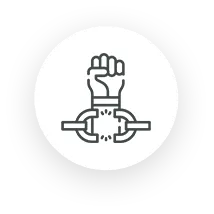
Achieve Financial Freedom Through Cash Flow Hacking
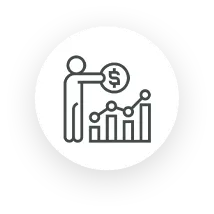
Increase Your Lifestyle While You Build Your Wealth
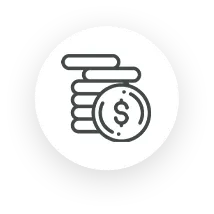
Position Yourself to Thrive in Market Downturn
YOU SHOULD NOT FEEL OUT OF CONTROL ABOUT YOUR FINANCIAL STRATEGY

Have easy access to your money in case of emergencies and opportunities

Use the investment strategy 90% of millionaires use

You deserve a clear plan to consistently grow your money and avoid market uncertainty

Have a guide and advisor that has your best interest in mind

Do not overpay in taxes

Stop guessing at the best vehicles to protect and grow your money
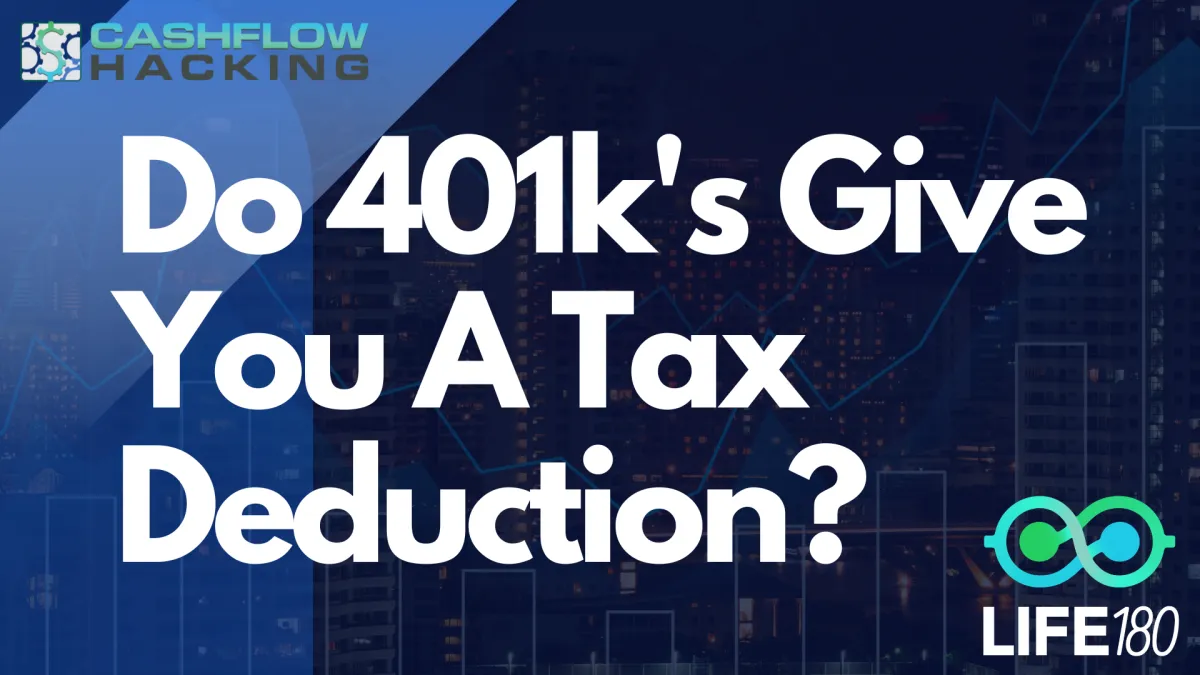
Do 401k's Give You A Tax Deduction? | How To Pay Less In Taxes
This article is a written adaptation of the video featured on our YouTube channel, LIFE180.
Intro Do 401k's give you tax deductions?
One of the most popular retirement vehicles people rely on is the 401(k). This is largely due to the fact that it's an employer-sponsored plan, meaning that when individuals work for a company and earn a W-2 income, their employer often provides access to this retirement option. A key feature that makes the 401(k) appealing is the immediate tax deduction individuals receive when contributing to the account.
In this article, I will break down why the 401(k) may not be as straightforward as it seems. I'll dive into the tax implications, explaining both the benefits and the potential risks associated with keeping your money in a 401(k).
The History of Taxes
When discussing 401(k)s, it's essential to consider the tax implications. Are you truly getting a tax deduction, or is something else happening beneath the surface? Instead of being vague, let’s dive straight in. But before we get into the specifics, it's important to take a step back and examine the history of taxes.

(You can view the complete illustration by accessing the following
Let’s delve into the history of taxes. Currently, we are in an all-time low tax rate environment. For context, the average tax rate is around 56.94%. To compare, in 1981, the top tax bracket for incomes over $215,000 was as high as 69.13%. While many people might feel that such high rates don’t affect them directly, it’s important to explore what this historical perspective means for us today.

(You can view the complete illustration by accessing the following
Examining federal income tax thresholds from 1913 to 2022 reveals an interesting evolution. When the Federal Reserve introduced income taxes, it started with relatively modest rates, just 1% on incomes up to $20,000. In 1913, $20,000 was a significant sum, and the top rate was 7% on incomes over $500,000. Adjusting for inflation, $500,000 back then is roughly equivalent to around $15 million today.
Over time, tax rates gradually increased, fluctuated during events like the Great Depression, and saw shifts between higher and lower brackets. Notably, tax rates for the wealthy have experienced significant changes over the decades.
As you can see, the tax rates and thresholds for upper income brackets have fluctuated significantly over time. This variability isn't unique to our current era; taxing the ultra-wealthy has been a historical approach. However, evidence shows that such taxation strategies can be counterproductive. They often disincentivize the most productive individuals from continuing their contributions, which can negatively impact the economy, reduce overall productivity, and affect job creation.
Over time, tax rates have seen significant fluctuations, influenced by various political regimes and historical events. For example, during World War II, there was a substantial increase in tax rates for lower income brackets.
The income threshold for these brackets was halved, and the tax rates jumped accordingly. This was a necessary measure to fund the war effort, given the global scale of the conflict. The impact on the wealthy was also considerable, reflecting the immense financial demands of wartime.
So, why is this historical perspective important? Understanding past tax thresholds and brackets helps put our current situation into context. We are currently experiencing historically low tax rates.
For instance, back in the 1980s, the top tax rate exceeded 50%, with lower brackets starting at around 11%. Today, the top rate is 37%, and the lower brackets are even lower. This comparison highlights how we are currently in a period of relatively low taxation.
When we take a broader view and examine the visual representation, such as a bar graph, it becomes evident that top tax rates are at historic lows. This is particularly clear when we exclude the initial years when federal tax brackets were introduced. Those early rates were more about establishing a foothold for income taxation. Over time, it evolved into a system where the government collects a substantial portion of income from the populace.
This system has become deeply entrenched in law. While some might argue that the federal tax structure is unconstitutional, the reality is that failing to pay taxes can lead to severe consequences, including imprisonment. Therefore, it's crucial to comply with the tax laws, regardless of these debates.
What Does Our Current Tax Environment Mean For Our Future?
When examining the current tax brackets and comparing them to historical data, it's clear that we are in a period of relatively low taxation. Meanwhile, our national debt has reached unprecedented levels.
Historically, during significant conflicts such as the Cold War, Desert Storm, and the Afghanistan War following the September 11 attacks, taxes remained low. This low tax environment, combined with extensive military spending and other factors, has significantly contributed to our national debt.
While the military-industrial complex has played a major role in this, it's important to recognize that there are also numerous unfunded liabilities and other financial challenges contributing to our current fiscal situation.
A Look At National Debt & Unfunded Liabilities
Currently, the U.S. is approximately $31 trillion in debt, and that number is rising at an alarming rate. However, the most staggering figures come from our unfunded liabilities, which stand at around $187 trillion. This equates to a liability of approximately $559,000 per citizen, a truly unsustainable number. It’s a massive debt bubble, and the pressing question is: when will it burst, what will that look like, and how will we navigate the ramifications of such a collapse?
At the end of the day, when you consider the combination of our rising debt and the fact that we are in one of the lowest tax rate environments in history, it's clear that tax rates will inevitably have to rise. Looking at historical tax trends reinforces this reality. So, common sense tells us that higher taxes are on the horizon.
This brings us back to the 401(k) and raises the question: What does this mean for those relying on it for retirement?
What Happens To Your Money When You Put It In A 401k
Let’s walk through how a 401(k) works. When you contribute to a 401(k), many people believe they're getting a pure tax deduction. For example, if you earn $100,000 and save 10%, which is $10,000, that amount goes into your 401(k), and your taxable income is reduced to $90,000. This makes it seem like you're only paying income tax on the $90,000, thanks to the deduction on your $10,000 contribution.
While it’s true that you receive a deduction for that specific year, the reality is that this $10,000 isn't really a deduction, it's a deferral. You're postponing the payment of taxes. So, if you're in a 10% tax bracket, you're deferring paying 10% on that $10,000.
The money then goes into your 401(k), grows over time, and eventually, when you start withdrawing it, say after 20 years of contributing $10,000 annually, you could end up with $350,000 or $400,000. The exact amount doesn’t matter; the point is what happens when you finally take the money out.
So after 20 years, you now have $350,000 and are ready to start taking income from it. But let’s assume that due to rising debt and other factors, tax rates have increased to 20%, which is not unrealistic, even for lower brackets. In that case, deferring taxes will end up costing you more in taxes over the course of your life than if you had paid the 10% upfront.
Instead of paying 10% upfront, $1,000 a year, and having control over that money as it grew tax-free, you'll now be facing a 20% tax on any money you withdraw as earned income. This means you're paying double the tax rate you initially deferred, which could significantly reduce the value of your savings.
Remember, while you're reducing your earned income by $10,000 each year, as that money grows to $350,000, you'll still have to claim every withdrawal as earned income. This is a critical point to grasp when considering the flow of money and how the tax implications play out over time.
Not All of the Money In Your 401k Is Yours
Now, consider this: if you're currently in a 20% tax bracket and you have a million dollars saved, you need to account for taxes. In this case, you'd owe $200,000 in taxes on that million dollars, meaning your real, usable money would be reduced by that amount.
So, effectively, out of that million dollars, only $800,000 is truly yours after taxes. You might have a million dollars in your 401(k), but that’s not entirely your money, 20% of it, or more, belongs to taxes. Even if you deferred at a lower rate initially, you're still deferring taxes, not avoiding them.
I always tell people to align their money with their values and beliefs. If you believe taxes won’t rise, a 401(k) can be a great option. But if you think taxes will go up, then putting your money in a 401(k), IRA, or any tax-deferred vehicle can be risky. Remember, it’s not a tax deduction, it’s a tax deferral, and that makes a big difference.
Now, imagine that same million dollars, but with a 30% tax rate. That means your tax liability is $300,000, leaving you with only $700,000. You've essentially lost $100,000 compared to a 20% tax rate.
This is one of the key points I discuss with people. If you're currently in a 20% tax bracket and have a million dollars, you might wonder whether you should cash it all out and invest it elsewhere, like in real estate. I'm very cautious about advising people on such decisions. I don’t believe in telling anyone what they should or shouldn’t do. You need to come to your own conclusions.
Any advisor who insists that you either leave your money in or cash it out shouldn’t be fully trusted. The important thing is to make an educated decision by understanding your risks. In the end, no one truly knows what will happen, taxes could go up, stay the same, or even go down, though I find that last scenario hard to imagine. Still, dismissing the possibility would be unwise.
Anything is possible. If there’s one thing I’ve learned, it’s that the government has an incredible ability to manipulate and control the economy in ways most people can’t even comprehend. So, I won’t say it’s impossible for taxes to go down. Now, do I believe that will happen? No. In my opinion, taxes are more likely to go up.
Should You Cash Out Your 401k?
Now, let’s consider what happens if you’re younger than 59 ½ years old. This is important because, before that age, you’ll have to pay a 10% penalty to access your 401(k) funds. That’s something everyone should understand. In addition to the penalty, you’ll always owe earned income tax on any withdrawals. So, a lot of people think, "If I take out this million dollars, I’ll be hit with both income taxes and the penalty, and I don’t want to deal with that."
One important thing to consider is if you're earning $100,000 or $150,000 a year and have a million dollars in your 401(k), you don’t want to cash it all out at once. Doing so would push you into a higher tax bracket, which you want to avoid. It's crucial to consult with a CPA, accountant, or, ideally, an enrolled agent. Enrolled agents tend to be better planners than typical accountants or CPAs and can help you create a strategy to distribute that million dollars more efficiently.
Yes, you're going to have to pay a penalty, and yes, you’ll have to pay taxes. Taxes are unavoidable, but the key is ensuring you don’t pay more in taxes over your lifetime than necessary. Many people get anxious about the 10% penalty, thinking, "I’m going to have to pay $100,000 just to access this money before I'm 59 ½ years old."
My argument, and the reason I would consider this approach, though I’m not saying you should, comes down to control. If I believe taxes are going to rise, I want to control that money now. When it's locked in a 401(k), I don’t have control over it, and I can’t invest in other opportunities, which could be the best investments during challenging economic times.
Yes, I am taking a 10% hit in the short term, but if I believe taxes are going to rise from 20% to 30%, I haven't really lost anything overall because I would face that higher tax rate eventually. By taking control of the money now, I can seize other investment opportunities. I would argue that the opportunity cost of keeping the money in your 401(k), where you miss out on potentially lucrative investments, far outweighs the 10% penalty.
The Value of the Control of Money
Now, this approach isn’t the same for everyone. It's important to understand that the value of having control over your money varies from person to person. For example, if both you and I had control of a million dollars, the returns and what we each do with that money would likely be very different.
I would venture to guess that I could outperform most people reading this article when it comes to generating returns on that million, due to my knowledge, expertise, connections, and access to opportunities.
But that’s something you grow into. When you take full responsibility for the outcomes in your life, I firmly believe that where you are financially is a direct result of who you are with your money.
By taking control of your money and your 401(k), seeking opportunities, and growing personally and financially, you're removing your money from the system and mitigating the risk of future taxation increases. It’s not out of the realm of possibility for the tax rate to rise from 30% to 50%.
If that happens, your million dollars, which currently amounts to $800,000 after taxes, could be reduced to just $500,000. In such a scenario, you could lose $300,000 of your own money.
The government has the legal authority to tax your wealth away. When we consider the current debt levels, unfunded liabilities, and other financial factors, it doesn’t take much to understand that keeping your money in a 401(k) carries significant risk. This risk isn’t just about market fluctuations but also includes the potential for higher taxes in the future.
Tax Deduction vs Tax Deferral
The key point to understand is that with a 401(k), you’re not actually getting a tax deduction. While you may receive a deduction for this year, what you're really getting is a tax deferral. The risk associated with that deferral is significant, and the opportunity cost of keeping your money in a 401(k) can be substantial.
At LIFE180, our focus isn’t just on how to get you a tax deduction and reduce your tax liability for 2023. Instead, we emphasize the importance of avoiding short-term thinking. Obtaining a deduction today addresses only immediate concerns. Our goal is to help you reduce your tax liability over your entire lifetime. This requires a comprehensive plan and a forward-looking vision for what you want to achieve in your life.
Typically, when people reach the end of that journey, they realize that a 401k may not align with their values and beliefs. If this is something you'd like to explore further, I encourage you to take the next step. We have Certified Financial Planners (CFPs) on our team, and you can easily set up a free clarity call using the link below. I'll connect you with one of our financial planning experts or coaches to guide you through your options.
If you're interested in discussing your 401k or IRA, or if you're considering rolling any of that money over, be sure to note it in the meeting. Simply write "401k" in the notes, and I’ll make sure to connect you with the right team members who can best assist you.
Hopefully, this gives you a bit more clarity on the 401k conversation, as well as the differences between tax deductions and deferrals. It's not discussed enough, and I understand it can be overwhelming. But I hope this article has helped clarify things for you. If it has, I'd appreciate it if you shared the article with others who could also benefit from it.
Have a blessed, inspirational day.
HOW TO START TAKING CONTROL OF YOUR FINANCES BY MAXIMIZING YOUR CASH FLOW AND PROTECTING YOUR ASSETS

1. Schedule Your Free Clarity Call

2. Create a Free Customized Plan
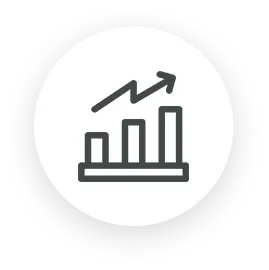
3. Get Guide to Financial Success
GET YOUR FREE COPY TO STOP USING OUTDATED RETIREMENT STRATEGIES
Cash Flow Hacking teaches you to:
Protect Your Investments
Thrive in bad markets
Reach financial freedom faster
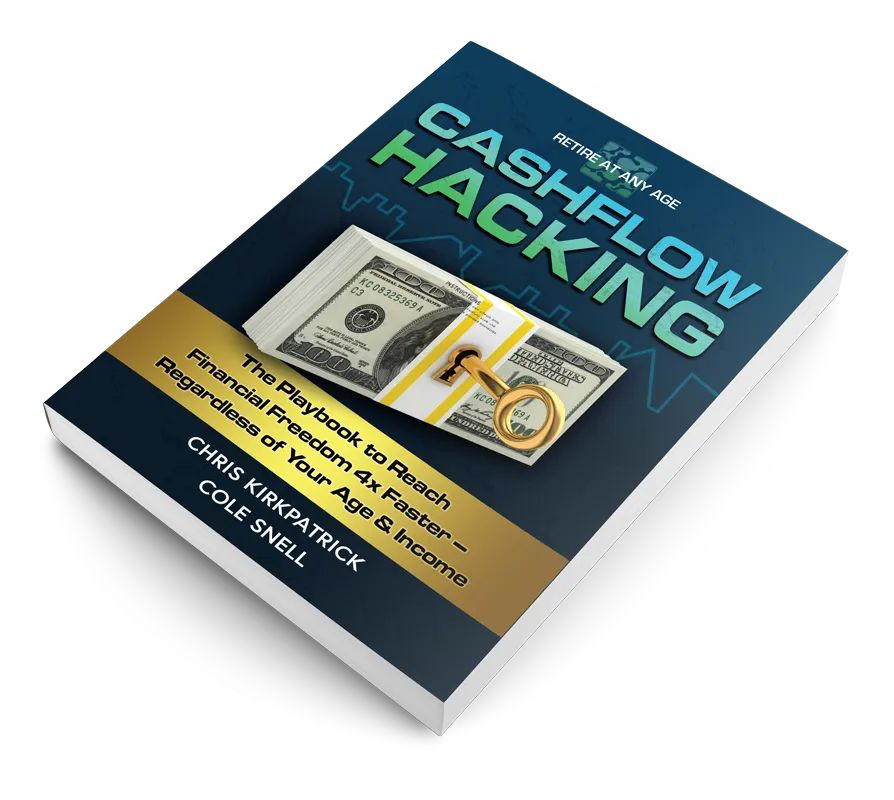
ARE YOU LOOKING FOR:

Cash Flow Hacking teaches you to:
Security to protect your money
Increased cash flow and lifestyle
Inflation protection
Financial certainty in all economic environments
A reduction in taxes
Safe and fast access to your money with no penalties
WHO IS THIS PROGRAM FOR?

People looking for an alternative
Are you looking for alternatives to Wall Street’s “buy and hold” strategy that takes 40 years with uncertain results? Our Cash Flow Hacking strategies provide you the building blocks to get started on the right foot

Passionate Entrepreneurs
Are you looking for a financial strategy that will take your best assets (you and your businesses) and multiply their potential? Our Cash Flow hacking strategies will teach you how to invest for the future without sacrificing building your business

Real Estate
Investors
Are you a real estate investor who is burned out from being a landlord or playing the fix-and-flip game? Our Cash Flow Hacking strategies will provide you with the system to create predictable wealth AND give you the freedom you are looking for.
YOU DESERVE PEACE OF MIND AND A PLAN THAT WILL PROTECT YOUR FAMILY AND GROW YOUR WEALTH
Today you need to be more savvy than ever if you try to go at it alone.
Losing money to inflation, taxes, and just poor investment strategies is leaving you frustrated, feeling out of control and not knowing where to turn. To add to the problem, the market is flooded with advisors who have outdated advice that does not place your best interests first, but instead focuses on charging you a fee that creates guaranteed cash flow for them.
NOT YOU
We believe this is wrong and that your security and best interests should be placed first. We believe you should be in a position where you control your money, your money doesn't control you. We understand because we talk with hardworking people everyday that are losing money in the markets based on old information and feel like they are guessing at the best course of action.
We created the Cash Flow Hacking plan to help you have security and control of your money to take advantage of life's opportunities because you deserve peace of mind with your wealth. The old way of planning for retirement of… Go to school Get a job & save as much as you can in your 401k and mutual funds...is broken.
You have been lied to. Think about it, where else in life does someone tell you that the most certain way to achieve your desired result is to take on more risk? The math just doesn't work, and the results are showing in our country and world. Did you know that 90% of millionaires in the United States have 1 asset in common?
Hint: it's not stocks or mutual funds (and no...it's not crypto) How much sense does it make for you to work hard, save money, reduce your current lifestyle (because that's what you are doing when you save for the future - taking money you could use on lifestyle today and delaying gratification to a future unknown time), and hope that whatever you are doing will work three to four decades from now? If you're thinking, "not much sense at all…", you are in the right place.
With over 50 years of experience on our team, we have worked with thousands of individuals and families to achieve financial freedom faster and with more predictability by helping them invest for Cash Flow.
How does the Cash Flow Hacking Plan work? 1. Take the Cash Flow Hacking Challenge 2. Complete the LIFE180 X-Ray and determine what your Freedom Number is 3. Work with a Cash Flow Hacking expert to provide you a customized plan
The customized Cash Flow Hacking plan will give you clarity on where you are now, where you want to go (and in what time frame), and what you need to do to get there predictably.
We value and commit to you: We believe you deserve the best financial education and guidance We believe financial decisions should not be rushed but be well thought out with a plan We believe you should be in control of your money We believe we earn your trust through time, education, and proper due diligence Without a proper plan and guidance, your money can be lost to taxes, inflation, and bad investments You deserve more with the most up-to-date strategies to mitigate your risk, control your money, and earn stable returns regardless of the market Schedule a call here to attain your LIFE180 Financial X-Ray now or get started with the Cash Flow Hacking Challenge for free.
I am interested in...